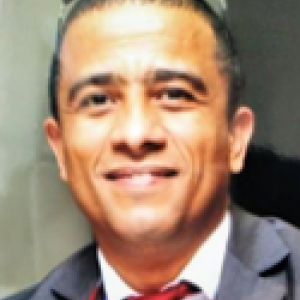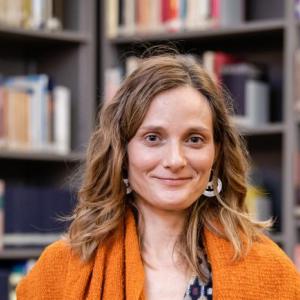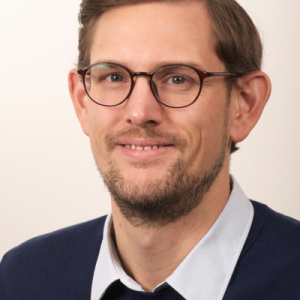Short description:
Ceyhun Elgin is a Professor of Economics at Bogazici University (Turkey). He obtained his PhD in economics at the University of Minnesota in 2010 and his research interests are in applied macroeconomics, economic growth, and political economics with a particular emphasis on the economics of the informal sector. Previously, Dr. Elgin also had visiting positions at the IMF, WB, Columbia University, and Boston University.
Short description:
Problématique:
L'analyse sociologique et politologique des politiques publiques d'inclusion (PPIS) par le sport et l'éducation physique (EP) est régie par deux tendances doctrinales en opposition. D'un côté, l'humanisme de l'EP et du sport confère aux politiques d'éducation par le sport un ensemble de valeurs centrées sur la personne en faveur de l'inclusion et l'intégration. De l'autre, le réalisme politique confère aux politiques de l'EP un caractère non conventionnel renforçant la thèse de marginalisation.
En conséquence, le référentiel des politiques publiques d'inclusion par le sport et l'EP peine à réaliser les rééquilibrages nécessaires entre l'approche par les valeurs de l'humanisme et les impératives du réalisme politique.
Short description:
A storyteller at heart, Vanesha is deeply passionate about the power of stories in driving civic movements. As the Communications and Advocacy Manager at Kota Kita, she combines her field journalism training with a diverse experience in communications for development to execute compelling media & communication strategies that raise public awareness and stimulate citizen participation on pressing urban issues. She holds a Bachelor’s degree in Communication Studies, Journalism with a minor in Sociology from Seattle Pacific University, and has contributed to media outlets such as the Jakarta Globe, the Jakarta Post, iBAN magazine, and the Next Billion.
Short description:
Dr Mohammad R. Kalantari is the co-director of the Centre for Islamic & West Asian Studies (CIWAS), and Research Fellow in International Relations of the Middle East at Royal Holloway University of London. His research interest lies in the International Relations of the Middle East with a particular focus on the interaction of regional doctrines, Muslim clerical elites and their transnational networks. He has collaborated actively with policymakers and researchers in various inter-disciplinary projects addressing the contemporary affairs of the Middle East and the Muslim World.
Short description:
Program manager/researcher at Samuel Hall. International Development practitioner currently working as a researcher and program manager with an international research firm. Deeply passionate about education + health-related issues, particularly with regards to refugees, migrants, and the most marginalised. 10 years experience as an international secondary school educator and holding a MSc, B.Ed. and B.A. I'm looking forward to collaborating with you!
Short description:
Rossella Ciccia is Associate Professor of Social Policy in in the Department of Social Policy and Intervention and a Fellow of Green Templeton College. Her research interests lie in field of comparative social policy with a particular focus on issues relating to social inequalities, gender, care and paid work in Europe and Latin America. She is a member of the international research network Gender Equality Policy in Practice (GEPP), the scientific board of the International Observatory on Social Cohesion and Inclusion and the steering committee of the ECPR Standing Group on Gender and Politics.
Short description:
Jens Jungblut works as an Associate Professor at the Department of Political Science at the University of Oslo. Prior to this, he was a postdoctoral research fellow at the Scandinavian Consortium for Organizational Research (SCANCOR) at Stanford University and a postdoctoral researcher at the International Centre for Higher Education Research (INCHER) at the University of Kassel. He received his PhD from the University of Oslo. His main research interests include party politics, policy-making, and public governance in the knowledge policy domain (higher education & research), organizational change in higher education, and the role of (academic) expertise in policy advice.
Short description:
Jakob is Research and Policy Officer at OPHI. He does both academic research on multidimensional poverty measurement and analysis and associated areas – and he works with international partners in United Nations agencies and governments around the world towards the development of multidimensional poverty indices as permanent official statistics and all-of-government policy-tools.
Jakob is also Lecturer at Leuphana University of Lüneburg, Germany.
He previously held research positions at the Blavatnik School of Government and Mansfield College (both University of Oxford), and has worked in diplomacy for the German Federal Foreign Office.
Research interests
Theories, measurement, and analysis of well-being, poverty and inequality; welfare economics; sustainable (human) development; social protection; evidence-based public policy; and the capability approach.
Select Publications
2021
UNDP and OPHI (2021). Global Multidimensional Poverty Index 2021. Unmasking Disparities by Ethnicity, Caste and Gender. New York: United Nations Development Programme.
WHO (2021). Using Multidimensional Poverty and Vulnerability Indices to Inform Equitable Policies and Interventions in Health Emergencies. Geneva: World Health Organization.
Dirksen, J. and Alkire, S. (2021). ‘Children and Multidimensional Poverty. Four Measurement Strategies’, Sustainability, Vol. 16, No. 13: 9108. DOI: 10.3390/ su13169108. (Also published as: OPHI Working Paper 138, Oxford Poverty and Human Development Initiative (OPHI), University of Oxford.)
NPC (2021). Nepal Multidimensional Poverty Index 2021. Analysis Towards Action. Kathmandu: National Planning Commission, Government of Nepal.
2020
Dirksen, J. (2020). ‘Which Are the Dimensions and Indicators Most Commonly Used to Measure Multidimensional Poverty Around the World?’, Dimensions, Vol. 11: 14-22.
Alkire, S., Dirksen, J., Nogales, R. and Oldiges, C. (2020). ‘Multidimensional Poverty and Vulnerability to COVID-19. A Rapid Overview of Disaggregated and Interlinked Vulnerabilities in Sub-Saharan Africa’, OPHI Briefing 54a, Oxford Poverty and Human Development Initiative, University of Oxford.
Alkire, S., Dirksen, J., Nogales, R. and Oldiges, C. (2020). ‘Multidimensional Poverty and Vulnerability to COVID-19. A Rapid Overview of Disaggregated and Interlinked Vulnerabilities in Sub-Saharan Africa’, OPHI Briefing 54, Oxford Poverty and Human Development Initiative, University of Oxford. This briefing is also available in French.
Alkire, S., Dirksen, J., Nogales, R. and Oldiges, C. (2020). ‘Multidimensional Poverty and COVID-19 Risk Factors. A Rapid Overview of Interlinked Deprivations Across 5.8 Billion People’, OPHI Briefing 53a, Oxford Poverty and Human Development Initiative (OPHI), University of Oxford.
Alkire, S., Dirksen, J., Nogales, R., and Oldiges, C. (2020). ‘Multidimensional Poverty and COVID-19 Risk Factors. A Rapid Overview of Interlinked Deprivations Across 5.7 Billion People’, OPHI Briefing 53, Oxford Poverty and Human Development Initiative, University of Oxford.
Alkire, S., Dirksen, J., Oldiges, C. and Nogales, R. (2020). ‘Multidimensional Poverty and the Risk from COVID-19’, Dimensions, Vol. 9: 7-10.
UNDP and OPHI (2020). Global Multidimensional Poverty Index 2020. Charting Pathways out of Multidimensional Poverty: Achieving the SDGs. New York: United Nations Development Programme.
OPHI (2020). Multidimensional Poverty in Chhattisgarh: A Measure for Action. Oxford Poverty and Human Development Initiative, University of Oxford.
2019
UNDP and OPHI (2019). Global Multidimensional Poverty Index 2019. Illuminating Inequalities. New York: United Nations Development Programme.









